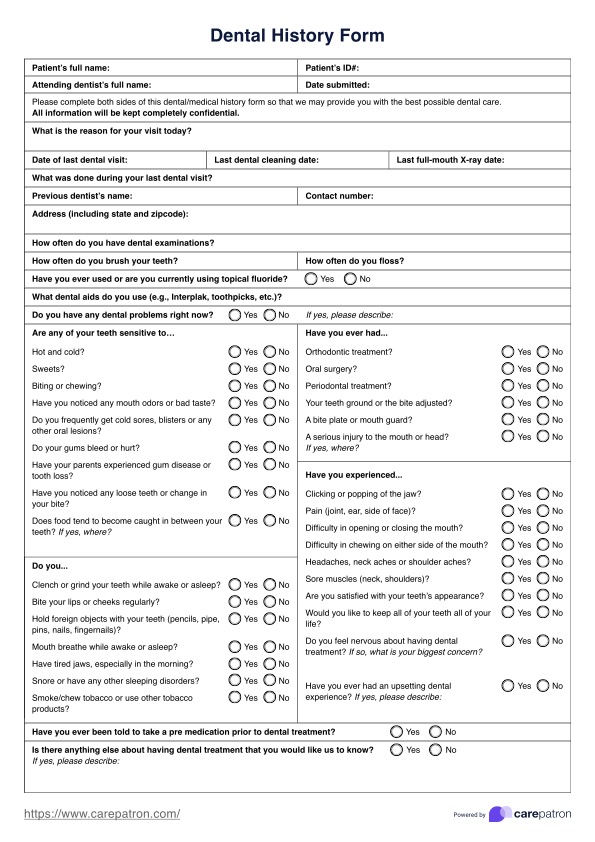Dental professionals, including dentists, dental hygienists, and dental assistants can use these forms.

Dental Medical History Forms
Use our Dental Medical History Form to help you understand your patient's dental health and determine what you can do based on their history.
Use Template
Dental Medical History Forms Template
Commonly asked questions
During new patient intake, regular check-ups, and before any major dental procedures.
They are filled out by the patient or caregiver and reviewed by the dental professional to tailor the care plan.
EHR and practice management software
Get started for free
*No credit card required
Free
$0/usd
Unlimited clients
Telehealth
1GB of storage
Client portal text
Automated billing and online payments











